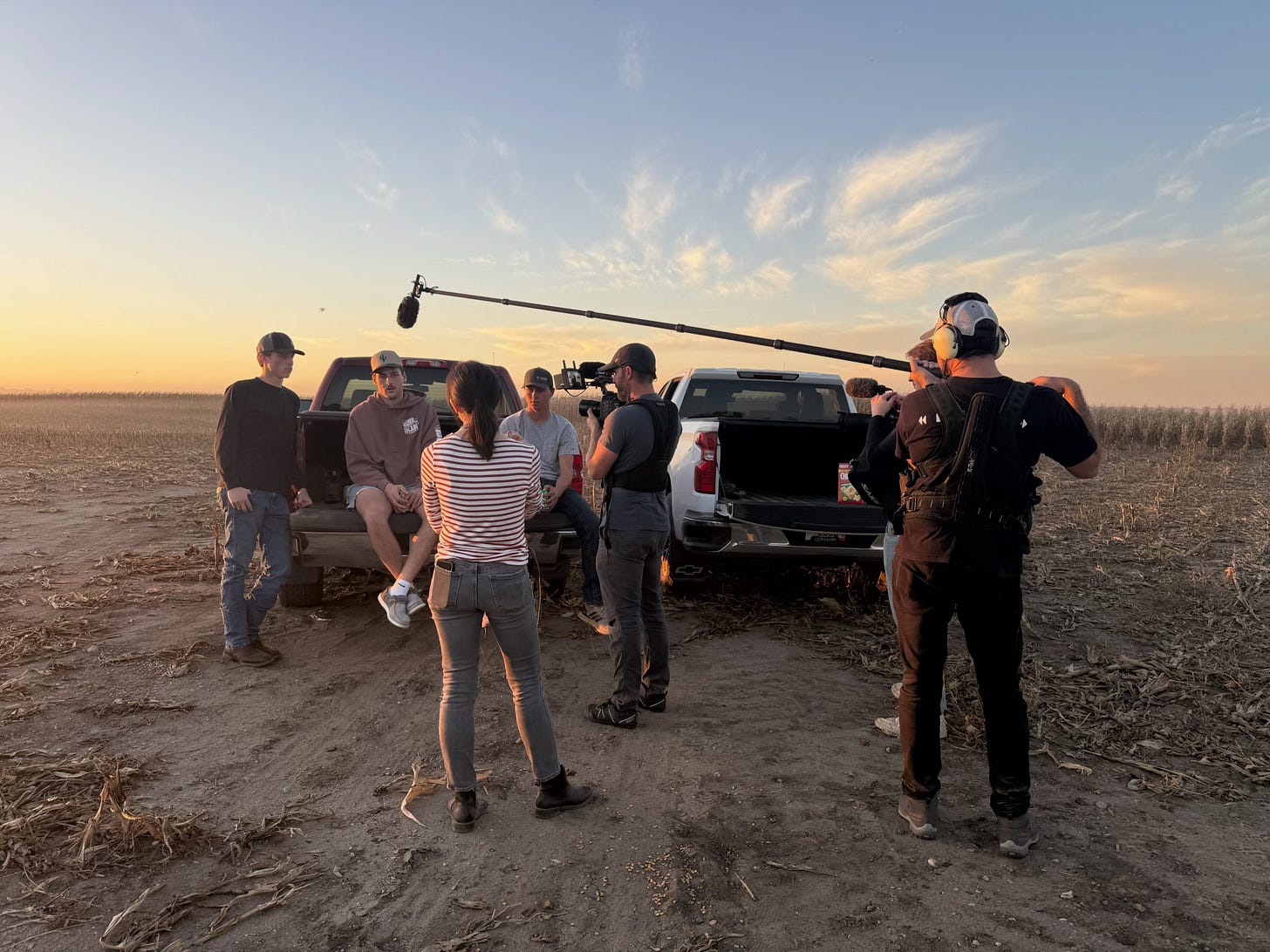The Weight of the Unknown
Thoughts on Directing Documentary in Real Time
Two recent events led me to write this.
First, I was mentoring a group of young filmmakers and realized there’s still a lot of confusion around what a documentary director actually does. After all, it’s not like we’re working from a script we’re trying to execute scene-by-scene. It’s a far more spontaneous process - one that, from the outside looking in, might not even seem creative. But inherently, it is.
Second, I just got back from a production trip where what was happening in front of us diverged from the call sheet. Participants started dropping out, and we had to think quickly, making decisions on the fly. We only had three days in the field. I’m proud of the choices we made as a team, but I won’t pretend there wasn’t a mix of panic and frustration; especially when the bottom falls out and the team is looking at you, asking, What now?
And just to be clear: you should expect the bottom to fall out. It’s a fool’s errand to think your call sheet will ever come to full fruition.
The thoughts below mostly pertain to nonfiction filmmaking, but I think they apply to the role of a director across mediums (or directing your own life).
Directing, at its core, is a series of decisions made in the moment.
You turn left. You turn right.
You wait for the cow to leave the frame.
You run to get ahead of the cow.
You put down the camera and help your participants make dinner because they are fresh out of high school, and don’t know how to chop vegetables; because you’re losing light, and the whole crew is tired and needs a break.
Then you pick the camera back up and film them eating said dinner.
You follow the plan until the plan no longer serves the story - then you let it go.
If you don’t make those decisions, someone else will. The person you’re filming, likely. Your crew will too, out of desperation. The situation itself can start determining the direction. And often, that means the moment won’t work - not for the people involved, not for the film, and not for you.
People are looking to you to lead. That doesn’t mean you have to know everything (you won’t). It means you have to care enough to decide. It means you’re willing to hold the weight of the unknown and still move forward.
There’s always room for collaboration. In fact, a good director listens closely. They adjust. They ask questions.
But a good director also decides. There’s no timeline where you can opt out of that part.
And directing is not just pointing a camera or calling the shots on set. It’s leading a group of people (sometimes strangers, sometimes collaborators) through a real-life moment. Honestly, sometimes that moment is a letdown, and it’s up to you to figure out a better way forward. But your job is not just to capture the information in front of you. It’s to capture the essence.
What does it feel like to be here, in this room, at this time?
Is it quiet? Tense? Hopeful? Boring?
Do you want the boredom to stay in the frame? How might that impact how wide or tight your shot is?
Do you want the energy to shift? How might that impact the movement of the frame?
Do you want the light to feel natural or intentional? How might that impact how long you hold the shot?
These are not cosmetic choices. They’re emotional ones. They help shape how the audience feels and not just what they learn. And you are the one who has to make them. Not perfectly. Not always correctly. But intentionally and collaboratively.
Because the right decision in one scene is the wrong one in another.
There is no formula.
There is no universal “correct.”
There is only your decision.
So if you’re still developing that confidence? Fake it for now. Not in a performative way, but in the sense that you understand someone has to steer the ship, and right now, that’s you.
Let your choices evolve. Let yourself change your mind. Let your ideas be built on by other great ideas from your crew. But don’t let indecision run the shoot.
People - on and off camera - can feel when no one’s leading. The energy dips. The tension builds. You’ll see it in the footage later, and you’ll wish you’d spoken up.
So direct.
Even when you don’t feel like one yet.
Especially then.
It’s not about being the most confident person in the room. It’s about caring enough to shape what’s unfolding, and trusting that you’re not there by accident.
You’re the director.
Act like it.




Beautifully put!